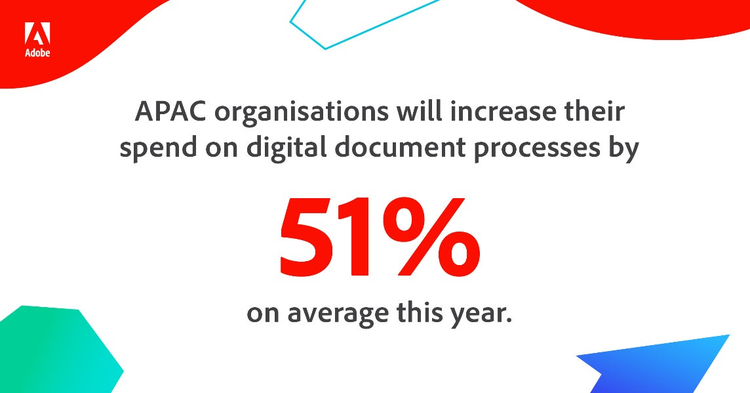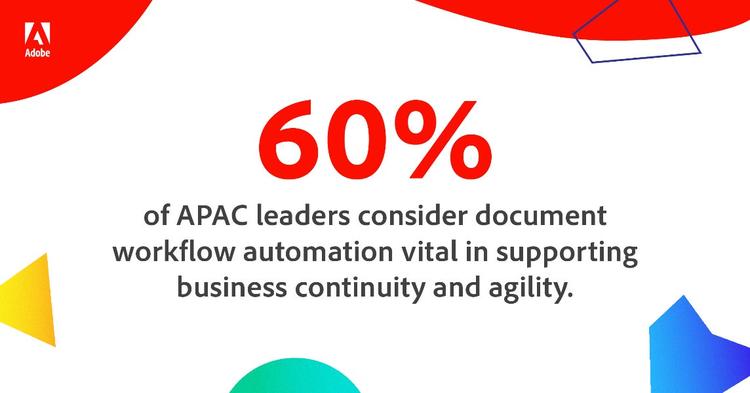How APAC businesses are faring in building intelligent digital workplaces
Businesses now must build intelligent workplaces where employees can develop and communicate content internally and with customers, in a highly automated and responsive way.

The pandemic has made remote working part of our daily business vernacular, forcing companies to fast-track their digital transformation efforts to survive and accelerate out of the crisis.
With the future of work being now and being digital, it’s critical for businesses to build an intelligent workplace – one where employees can develop and communicate content internally and with customers, in a highly automated and responsive way. This enables business growth, improves employee experience and facilitates business continuity.
Together with Adobe, Forrester Consulting researched the common challenges facing organisations and how they can accelerate their transition towards becoming intelligent digital workplaces. Here are some of the report’s key insights within the APAC region.
Insight: APAC businesses were less prepared to support remote work than other regions but are rapidly accelerating their digital transformation.
Use of digital collaboration and productivity tools was very much nascent in APAC before the pandemic. For instance, only 13 percent of APAC respondents considered e-signatures to be standard protocol in their businesses initially, almost five-times lower than in North America. This is exacerbated by the misperception that there is no regulatory support for electronic approvals.
This is quickly shifting, with the majority of APAC businesses now providing their employees with technologies to facilitate or improve remote work. Digital document processes are now considered an integral part of their IT landscape and provide the added benefit of document analytics and insights capabilities that manual and paper-based processes do not.
Insight: APAC organisations will increase their adoption of and spend on digital document processes this year.
Pre-pandemic, APAC organisations fell behind other regions in digitising their document processes and now need to intensify their efforts as a result. This year, 46 percent of APAC organisations plan to increase their adoption of digital document processes and will raise their spend by 51 percent on average.
This is especially notable, given that it comes at a time where a key business priority for leaders across the board is reducing budgets.
In this new environment, it is more important than ever before for businesses to equip their digital workplaces with intelligent technology to become more resilient, agile, and scalable.

Insight: The pandemic has exposed flaws in neglected back-office processes, forcing APAC business leaders to re-examine post-pandemic priorities.
In 2020, firms shifted their automation focus to back-office processes, with decision makers now looking at uncovering gaps in their operational processes and how to address them. Sixty percent of APAC leaders consider document workflow automation indispensable in supporting business continuity and agility, as it helps to connect and automate content creation and collaboration.
Improving employee collaboration post-pandemic is also a top priority in APAC, showing that businesses understand the urgency and importance of building a strong foundation for the future of work and enterprise collaboration. The most effective way to do so is by adopting a platform approach that eliminates repetitive and mundane tasks, to create a people-centric, intelligent and digital workplace.

What’s next?
The report produced three key recommendations for organisations looking for new technology solutions and equipment to future-proof themselves.
Firstly, organisations should support their remote and hybrid workforce by investing in cloud-based alternatives to remote working technology and in modern collaboration tools.
Secondly, for full business transformation to be possible, an enterprise collaboration roadmap should be developed to drive an integrated, contextual engagement workplace.
Finally, by prioritising highly integrated and pragmatic solutions over ‘point solutions’, businesses can maximise collaboration capabilities and scalability to drive maximum business value.
Unlock the full insights in our report, Power Your Firm’s Intelligent Digital Workplace With Digital Document Processes.